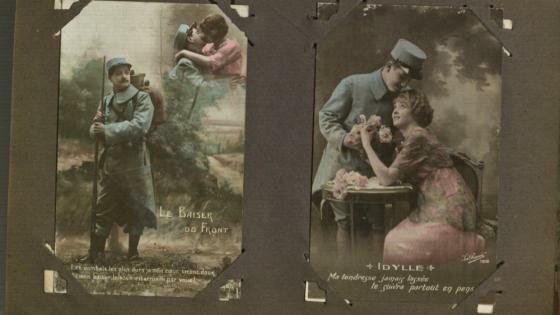- EYCSEducation, Youth, Culture & Sport (EYCS)
First World War: Europe looks into its past through Europeana
Europe commemorates this year the 100th anniversary of the outbreak of the First World War (1914-1918) – a watershed in the continent’s history that ushered it into what Eric Hobsbawm has termed “the short twentieth century”. This was a war that tore Europe apart, as no European nation was left untouched. But it was the ordinary men and women who were affected the most.
To give voice to their stories and make them accessible to a wider public, the project Europeana 1914-1918 has been put together as an online resource that opens up hidden stories of the First World War and shows the tragedy that shaped Europe from different sides of the conflict. In this sense, it is the most important pan-European collection of original First World War source material. (Europeana 1914-1918 is an offshoot of Europeana the multi-lingual online collection of millions of digitized items from museums, libraries, archives and audiovisual collections across Europe.)
The project has yielded so far 400,000 rare documents digitised by 10 state libraries and two other partners in Europe, 660 hours of unique film material contributed by 21 film archives and 5,500 film-related documents, digitised by audiovisual archives, as well as 90,000 personal papers and memorabilia of some 7,000 people involved in the war, held by their families and digitised at special events in 12 countries.
As part of the project, the European public is invited to share their private memorabilia from the First World War on the web. This could include photographs, letters, diaries, short films, audio recordings, objects as well as family stories that will then be digitised professionally and added to the online archive, along with corresponding descriptions.
To get people acquainted with the project, Europeana is organizing roadshows across Europe, in collaboration with Oxford University and local partners. So far, roadshows have been held in 12 countries, while in 2014 roadshows will be held in five more countries. However, independently of the roadshows, anyone can upload digitised images and information directly to the dedicated Europeana 1914-18 website.
In Greece, the main partners of the project are the Public Central Library of Veria, the National Library of Greece and Future Library. A press conference is taking place on 10 June, while collection dates have been scheduled as follows: Athens (20-21 June), Thessaloniki – Veria – Serres – Chania (27-28 June).
So, if you have material and family memorabilia from World War One, this is an opportunity to share them online with the rest of European citizens. Go ahead and contribute to building a common European Identity!








